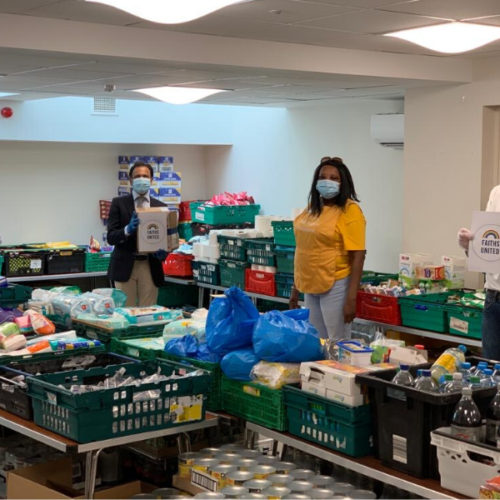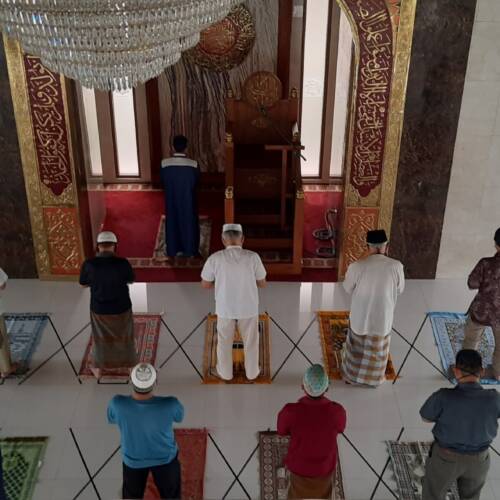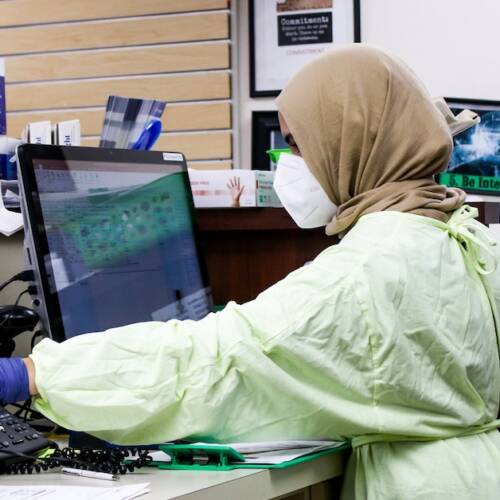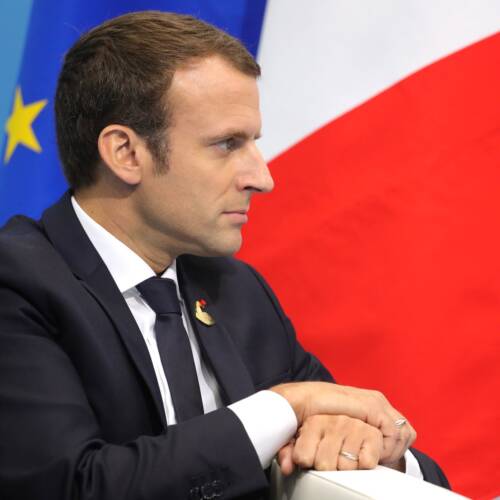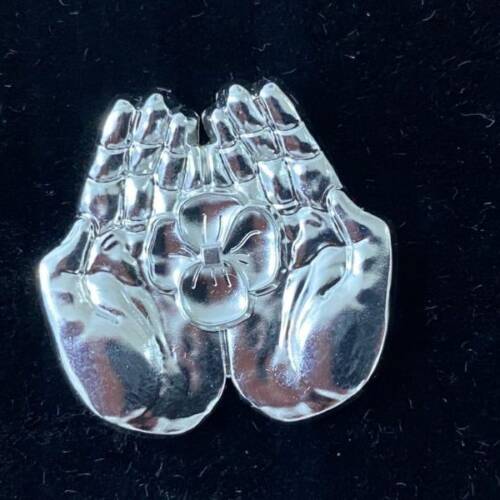
Far-Right Extremism: Another Disease That Needs Sanitising
23 Mar 2020It appears that dark times are upon us. Plagues of locusts have devastated crops in the Horn of Africa, sandstorms have swept through Iraq and Jordan, dolphins and swans appeared in the canals of Venice, coronavirus has become a global pandemic – remember to wash your hands – and in one village near the Italian city of Modena, water running out of the taps turned red and frothy. (Ok, it was sparkling wine due to a malfunction at a local winery, but great timing for some!)
Don’t touch your face!
Despite these apocalyptic conditions, bigotry and hate from the far-right continues to rear its ugly head – much like the novel coronavirus, the poisonous far-right doesn’t seem to get the hint: “go away!”. I hear stories from around the world all the time. Just last week in Canada, a man threw Islamophobic insults at a woman for wearing a hijab. In Australia a man was arrested for extreme right-wing behaviour and planning a terror attack. Threats were made near the mosques in Christchurch that were victim to the horrific massacre that killed 51 people, all around the time of the 1-year anniversary since it took place. And a recent attack at a shisha bar in Germany killed nine people casually enjoying their evening.
Please forgive my poor attempts at humour, but like coronavirus, toxic far-right hatred is not a joke. This disease also constantly needs sanitising.
In the UK, we’ve also been recently confronted by similar incidents. A man in Bath was arrested in December as part of a far-right terror raid; another similar raid took place in Luton at around the same time. Last year, two young men aged 18 and 19 were jailed for terrorism offences, belonging to a violent terror group called the Sonnenkrieg Division, which has its roots in actual Nazism. The notorious anti-Muslim far-right group Britain First has also been visiting mosques up and down the country in recent weeks intimidating worshippers and carrying out so-called “operations”.
Even in the midst of a global pandemic, people on the far-right are spreading conspiracy theories about the coronavirus. This ranges from the virus being a biological weapon created by the Chinese Government, to it being a conspiracy to stop Trump from being re-elected. Some have even called it a hoax, while Alex Jones, the conspiracy theorist on the far-right channel InfoWars, has been selling “Anti-Coronavirus toothpaste”, claiming it protects you against getting ill. Spoiler alert: it doesn’t. You may need other kinds of medicine if you watch InfoWars though!
At the time of writing, I came across two lovely racist rants doing the rounds on social media, both originating from London. The first: a voice recording from a disgruntled supermarket customer sitting in the car park of a local superstore moaning that the only items left in the entire two-story superstore are every variety of bacon and some alcohol. This clever chap thinks he solved the panic-buying conspiracy: “If that ain’t a p*** Muslim then I don’t what it is. The c**** that are born to eat rice and drive camels are wiping our f****** country clean.” And so it ends, “..and here’s one just pulled up next to me with his f****** trolley full of water.” Please will someone let him know he forgot to look in the bottled water aisle, oh and, you don’t drive camels? Idiot.
The second: a van driver filming his daily racism while driving down East Ham high street, pointing out that there’s no chance he could keep 6-foot from others because “all the foreigners” are out doing their shopping – you know surviving, feeding their families, going to work for the NHS to protect all of us. The driver-cum-narrator extraordinaire goes on to educate his single brain-cell audience that Iceland (the supermarket) has never had so many Blacks queue up to shop. “Do you see any f****** English people here?”, he exclaims, only to be surprised when he sees a white woman with a shopping trolley before ending his 5-star documentary. If he visited Devon, he might be surprised that only the natives do all the panic buying there!
Again, I realise that the incidents I’ve described are not funny, nor pleasant. But they should be pointed out because these disgusting attitudes are real and are harboured by an alarming number of people. Racists are blaming their frustrations with how our country is dealing with this pandemic on “foreigners”, and this must be called out too, as it has the potential to lead to widespread hate and extremism. I worry that this misplaced hate will result in violence if unchallenged.
Annoyingly, there are others claiming that black people are immune from the virus. Please stop. Unlike far-right racists, coronavirus does not discriminate.
To be honest, these stories are exhausting to read and hear, and are grossly insensitive to the victims of the virus, their families and the incredibly dedicated doctors, nurses and clinical staff working around the clock to fight it. It’s also exhausting hearing how people constantly want to attack minority communities. It’s exhausting seeing racists exploiting serious situations for their own gain. It’s exhausting explaining to people about these issues or discussing Islamophobia and the real threats facing us, especially from the far-right, without feeling that your views and fears are being ignored.
This is unfortunately the contemporary environment that we find ourselves in. As I mentioned in my previous article on the far-right, the 21st century brought with it a series of incidents that put Muslim identity at the forefront of society. For millennial Muslims, this is their perceived religious and racial identity, particularly following the global public discourse around the events of 9/11 and 7/7. Commentators on the 2008 Economic Crisis and Brexit have also scapegoated immigrants and minorities for being a drain on the UK, despite contributing immensely to society.
Identity has been readily exploited by far-right actors in the UK for their own gains. Following on from the 20th century, this century has brought with it a growing wave of populist nationalism that has increasingly excluded those who are deemed not to fit into certain rigid criteria of what, for example, constitutes ‘being British’. Within this heightened wave of nationalism, we as Muslims have found our identities and individual selves increasingly objectified, marginalised and discriminated against. And we have seen the effects of this before.
The charity, Remembering Srebrenica UK, which I recently had the pleasure of working at for a short time, educates the public on the Srebrenica genocide in July 1995 and reminds us of the consequences of hatred if left unchecked. Over 8,000 Muslim men and boys were murdered simply because of their Muslim identity. This July marks the 25th anniversary of the worst atrocity on European soil since the Second World War. It was only 25 years ago. On our doorstep. How far have we come?
With the coronavirus outbreak bringing about a watershed moment for the UK and the rest of the world, it makes me think how we will emerge from this crisis and reposition ourselves globally. Will we continue to isolate ourselves, but from the rest of the world? Or will we recognise that we are more global and interconnected than we think and have the power to bring about real change? Those on the far-right will hope to divide and isolate us further. I, for one, hope it’s the latter.








